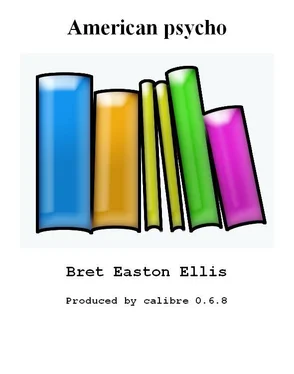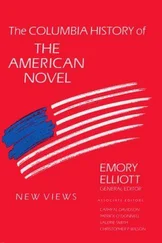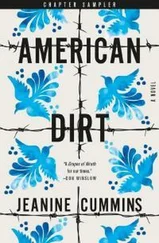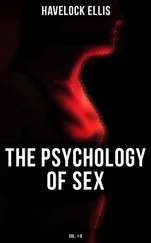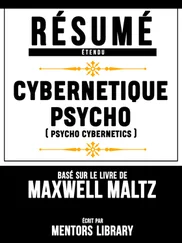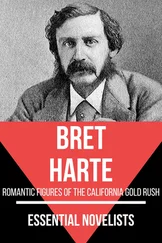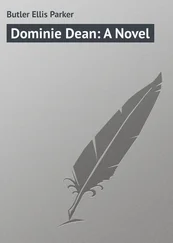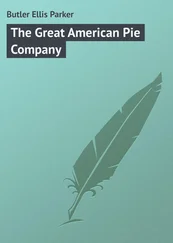Bret Ellis - American psycho - a novel
Здесь есть возможность читать онлайн «Bret Ellis - American psycho - a novel» весь текст электронной книги совершенно бесплатно (целиком полную версию без сокращений). В некоторых случаях можно слушать аудио, скачать через торрент в формате fb2 и присутствует краткое содержание. Жанр: Старинная литература, на английском языке. Описание произведения, (предисловие) а так же отзывы посетителей доступны на портале библиотеки ЛибКат.
- Название:American psycho: a novel
- Автор:
- Жанр:
- Год:неизвестен
- ISBN:нет данных
- Рейтинг книги:3 / 5. Голосов: 1
-
Избранное:Добавить в избранное
- Отзывы:
-
Ваша оценка:
- 60
- 1
- 2
- 3
- 4
- 5
American psycho: a novel: краткое содержание, описание и аннотация
Предлагаем к чтению аннотацию, описание, краткое содержание или предисловие (зависит от того, что написал сам автор книги «American psycho: a novel»). Если вы не нашли необходимую информацию о книге — напишите в комментариях, мы постараемся отыскать её.
American psycho: a novel — читать онлайн бесплатно полную книгу (весь текст) целиком
Ниже представлен текст книги, разбитый по страницам. Система сохранения места последней прочитанной страницы, позволяет с удобством читать онлайн бесплатно книгу «American psycho: a novel», без необходимости каждый раз заново искать на чём Вы остановились. Поставьте закладку, и сможете в любой момент перейти на страницу, на которой закончили чтение.
Интервал:
Закладка:
…doors, both of which are locked, where he notices the huge Julian Schnabel in the lobby and he realizes wrong fucking building and he whirls around, making a mad scramble for the revolving doors, but the night watchman who tried to get Patrick's attention before now waves him in, as he's about to bolt out of the lobby, "Burning the midnight oil, Mr. Smith? You forgot to sign in," and frustrated, Patrick shoots at him while spinning once, twice through the glass doors which thrust him back into the lobby of god only knows where as the bullet catches the watchman in the throat, knocking him backward, leaving a spray of blood hanging momentarily in midair before drizzling down on the watchman's contorted, twisted face, and the black janitor Patrick has just noticed has been watching the scene from a corner of the lobby, mop in hand, bucket by his feet, drops the mop, raises his hands, and Patrick shoots him right between the eyes, a stream of blood covers his face, the back of his head explodes in a spray, behind him the bullet knocks out a chunk of marble, the force of the blast slams him against the wall, Patrick dashing across the street toward the light of his new office, when he walks in…
…nodding toward Gus, our night watchman, signing in, heading up in the elevator, higher, toward the darkness of his floor, calm is eventually restored, safe in the anonymity of my new office, able with shaking hands to pick up the cordless phone, looking through my Rolodex, exhausted, eyes falling upon Harold Carnes' number, dialing the seven digits slowly, breathing deeply, evenly, I decide to make public what has been, until now, my private dementia, but Harold isn't in, business, London, I leave a message, admitting everything, leaving nothing out, thirty, forty, a hundred murders, and while I'm on the phone with Harold's machine a helicopter with a searchlight appears, flying low over the river, lightning cracks the sky open in jagged bolts behind it, heading toward the building I was last at, descending to land on the building's roof across from this one, the bottom of the building surrounded already by police cars, two ambulances, and a SWAT team leaps out of the helicopter, a half-dozen armed men disappear into the entrance on the deck of the roof, flares are lined up what seems like everywhere, and I'm watching all of this with the phone in my hand, crouched by my desk, sobbing though I don't know why, into Harold's machine, "I left her in a parking lot… near a Dunkin' Donuts… somewhere around midtown…" and finally, after ten minutes of this, I sign off by concluding, "Uh, I'm a pretty sick guy," then hang up, but I call back and after an interminable beep, proving my message was indeed recorded, I leave another: "Listen, it's Bateman again, and if you get back tomorrow, I may show up at Da Umberto's tonight so, you know, keep your eyes open," and the sun, a planet on fire, gradually rises over Manhattan, another sunrise, and soon the night turns into day so fast it's like some kind of optical illusion…
Huey Lewis and the News
Huey Lewis and the News burst out of San Francisco onto the national music scene at the beginning of the decade, with their self-titled rock pop album released by Chrysalis, though they really didn't come into their own, commercially or artistically, until their 1983 smash, Sports . Though their roots were visible (blues, Memphis soul, country) on Huey Lewis and the News they seemed a little too willing to cash in on the late seventies/early eighties taste for New Wave, and the album – though it's still a smashing debut – seems a little too stark, too punk. Examples of this being the drumming on the first single, "Some of My Lies Are True (Sooner or Later)," and the fake handclaps on "Don't Make Me Do It" as well as the organ on "Taking a Walk." Even though it was a little bit strained, their peppy boy-wants-girl lyrics and the energy with which Lewis, as a lead singer, instilled all the songs were refreshing. Having a great lead guitarist like Chris Hayes (who also shares vocals) doesn't hurt either. Hayes' solos are as original and unrehearsed as any in rock. Yet the keyboardist, Sean Hopper, seemed too intent on playing the organ a little too mechanically (though his piano playing on the second half of the album gets better) and Bill Gibson's drumming was too muted to have much impact. The songwriting also didn't mature until much later, though many of the catchy songs had hints of longing and regret and dread ("Stop Trying" is just one example).
Though the boys hail from San Francisco and they share some similarities with their Southern California counterparts, the Beach Boys (gorgeous harmonies, sophisticated vocalizing, beautiful melodies – they even posed with a surfboard on the cover of the debut album), they also carried with them some of the bleakness and nihilism of the (thankfully now forgotten) "punk rock" scene of Los Angeles at the time. Talk about your Angry Young Man! – listen to Huey on "Who Cares," "Stop Trying," "Don't Even Tell Me That You Love Me," "Trouble in Paradise" (the titles say it all). Huey hits his notes like an embittered survivor and the band often sounds as angry as performers like the Clash or Billy Joel or Blondie. No one should forget that we have Elvis Costello to thank for discovering Huey in the first place. Huey played harmonica on Costello's second record, the thin, vapid My Aim Was You . Lewis has some of Costello's supposed bitterness, though Huey has a more bitter, cynical sense of humor. Elvis might think that intellectual wordplay is as important as having a good time and having one's cynicism tempered by good spirits, but I wonder what he thinks about Lewis selling so many more records than he?
Things looked up for Huey and the boys on the second album, 1982's Picture This , which yielded two semihits, "Workin' for a Livin' " and "Do You Believe in Love," and the fact that this coincided with the advent of video (there was one made for both songs) undoubtedly helped sales. The sound, though still tinged with New Wave trappings, seemed more roots-rock than the previous album, which might have something to do with the fact that Bob Clearmountain mixed the record or that Huey Lewis and the News took over the producing reins. Their songwriting grew more sophisticated and the group wasn't afraid to quietly explore other genres – notably reggae ("Tell Her a Little Lie") and ballads ("Hope You Love Me Like You Say" and "Is It Me?"). But for all its power-pop glory, the sound and the band seem, gratefully, less rebellious, less angry on this record (though the blue-collar bitterness of "Workin' for a Livin' " seems like an outtake from the earlier album). They seem more concerned with personal relationships – four of the album's ten songs have the word "love" in their title – rather than strutting around as young nihilists, and the mellow good-times feel of the record is a surprising, infectious change.
The band is playing better than it last did and the Tower of Power horns give the record a more open, warmer sound. The album hits its peak with the back-to-back one-two punch of "Workin' for a Livin' " and "Do You Believe in Love," which is the best song on the album and is essentially about the singer asking a girl he's met while "looking for someone to meet" if she "believes in love." The fact that the song never resolves the question (we never find out what the girl says) gives it an added complexity that wasn't apparent on the group's debut. Also on "Do You Believe in Love" is a terrific sax solo by Johnny Colla (the guy gives Clarence Clemons a run for his money), who, like Chris Hayes on lead guitar and Sean Hopper on keyboards, has by now become an invaluable asset to the band (the sax solo on the ballad "Is It Me?" is even stronger). Huey's voice sounds more searching, less raspy, yet plaintive, especially on "The Only One," which is a touching song about what happens to our mentors and where they end up (Bill Gibson's drumming is especially vital to this track). Though the album should have ended on that powerful note, it ends instead with "Buzz Buzz Buzz," a throwaway blues number that doesn't make much sense compared to what preceded it, but in its own joky way it amuses and the Tower of Power horns are in excellent form.
Читать дальшеИнтервал:
Закладка:
Похожие книги на «American psycho: a novel»
Представляем Вашему вниманию похожие книги на «American psycho: a novel» списком для выбора. Мы отобрали схожую по названию и смыслу литературу в надежде предоставить читателям больше вариантов отыскать новые, интересные, ещё непрочитанные произведения.
Обсуждение, отзывы о книге «American psycho: a novel» и просто собственные мнения читателей. Оставьте ваши комментарии, напишите, что Вы думаете о произведении, его смысле или главных героях. Укажите что конкретно понравилось, а что нет, и почему Вы так считаете.
